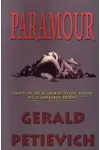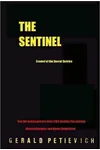Picture a gritty storyteller who traded a badge for a typewriter, spinning tales so real they could be ripped from a case file—meet Gerald Petievich! A former U.S. Secret Service agent, Petievich infuses his crime novels with the pulse-pounding authenticity of his fifteen years chasing counterfeiters and protecting presidents. His breakout hit, To Live and Die in L.A., even made it to the big screen, cementing his place in the noir hall of fame.
Born into a family of law enforcement, Petievich didn’t just write crime fiction—he lived it. His unique perspective offers readers a front-row seat to the shadowy world of federal agents, where moral lines blur and danger lurks at every turn. Let’s dive into the life and legacy of this master of hardboiled thrillers.
The Making of Gerald Petievich
Born on October 15, 1944, in Los Angeles County, California, Gerald Petievich grew up in a Serbian-American household steeped in police culture. His father and brother both served with the Los Angeles Police Department, and young Gerry soaked up their stories like a sponge. After earning a degree in European history from Cal State Los Angeles, he enlisted in the U.S. Army, serving as a counterintelligence officer in West Germany during the tense 1968 Soviet invasion of Czechoslovakia, earning commendations for his work.
In 1970, Petievich joined the U.S. Secret Service, where he spent fifteen years tackling counterfeiting rings and guarding dignitaries. A stint in Paris exposed him to literary giants like Graham Greene and John le Carré, sparking his ambition to write. By 1985, he left the Service to chase his dream full-time, rising at 4 a.m. to pen his gritty tales before heading to his day job.
Gerald Petievich’s Unforgettable Stories
Petievich’s novels are a masterclass in realism, blending his insider knowledge with the inverted detection style—where readers know the criminals from the start, and the thrill lies in the chase. His debut, Money Men (1983), follows Treasury agent Charles Carr as he hunts a counterfeiting ring, inspired by a real L.A. case where an undercover cop was murdered. It set the tone for Petievich’s raw, unfiltered storytelling.
To Live and Die in L.A. (1984) is his crown jewel, a noir classic adapted into a 1985 film with William Friedkin at the helm. The story pits a reckless Secret Service agent against a ruthless counterfeiter, capturing the seedy underbelly of Los Angeles. The Sentinel (2003) dives into White House intrigue, with agent Pete Garrison unraveling a neo-Nazi plot while guarding his own secrets. Earth Angels (1989) tackles L.A.’s gang wars, eerily predicting the LAPD Rampart scandal a decade later.
Petievich’s style is lean and cinematic, with dialogue that crackles and settings that feel lived-in. His themes—loyalty, betrayal, and the cost of justice—resonate with readers who crave authenticity over escapism. Three of his novels, including Boiling Point, became major motion pictures, with Petievich co-writing the screenplays, ensuring his vision stayed intact.
Why Gerald Petievich Matters
Gerald Petievich didn’t just write crime novels; he redefined what they could be. His law enforcement background gave his stories a rare credibility, influencing a generation of thriller writers who strive for that same gritty realism. His ability to weave real-world cases into fiction—like the blackmailer who inspired Shakedown or the White House scandal behind Paramour—made his work feel urgent and alive.
Today, Petievich’s novels remain a benchmark for the genre, offering a window into the high-stakes world of federal agents. His legacy endures in the readers who devour his books and the filmmakers who bring his stories to life, proving that truth can be just as thrilling as fiction.
- Born: October 15, 1944, Los Angeles County, California
- Key Works: Money Men, To Live and Die in L.A., The Sentinel, Earth Angels
- Notable: Three novels adapted into major films; co-wrote their screenplays
Snag To Live and Die in L.A. and dive into Gerald Petievich’s hardboiled world of crime and consequence!








